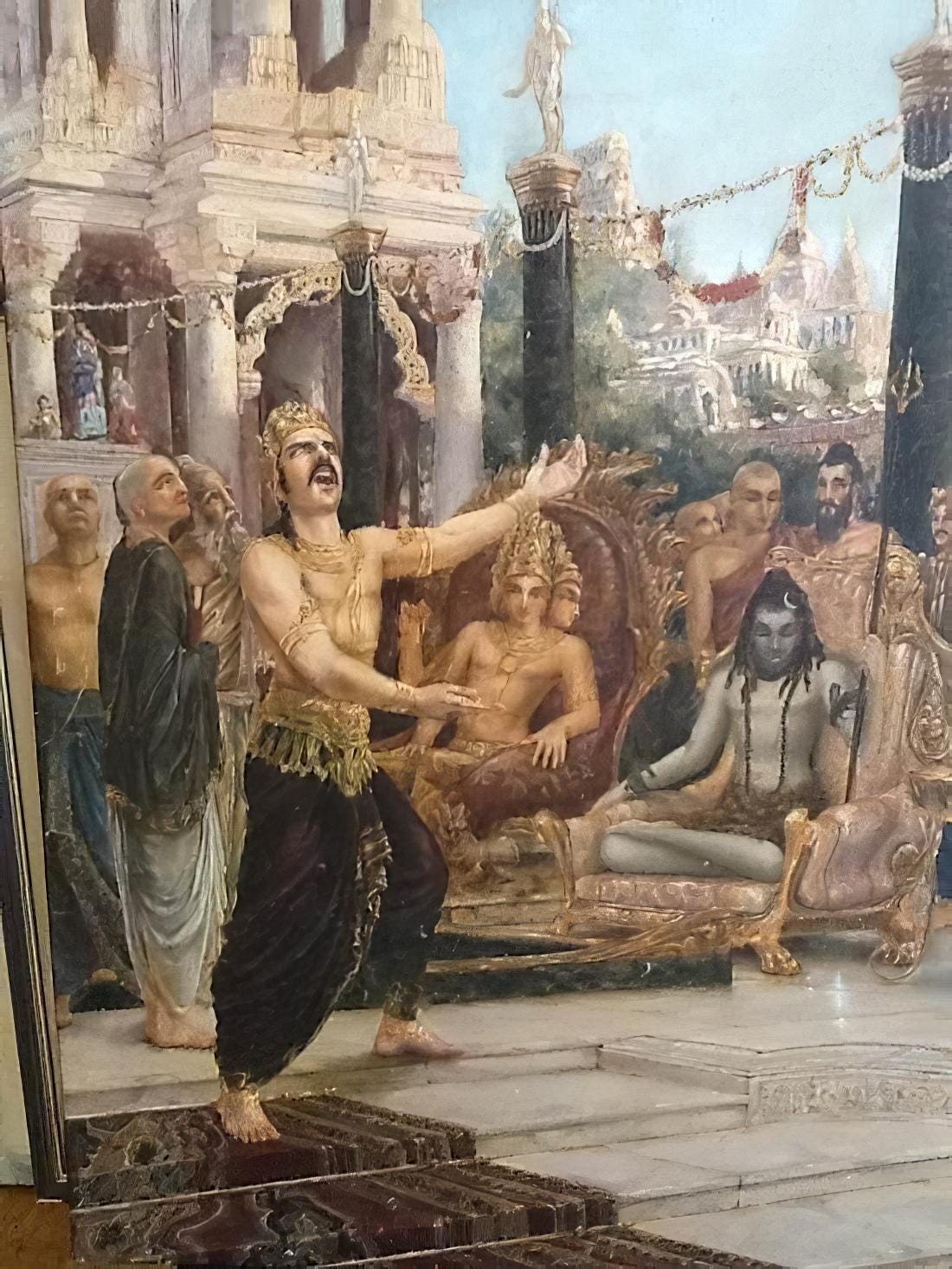Fruitive activity is not the goal of the scriptures - Govinda-bhasya
There are also passages in the scriptures that appear to suggest that fruitive activities and the performance of vows can bring eternal results. How can this idea be refuted?
« Vedānta-sūtra: The Govinda-bhāṣya of Baladeva Vidyābhūṣaṇa
« Sutra 1.1.1 - athāto brahma-jijñāsā (Beginning of the topic)
Fruitive activity is not the goal of the scriptures
However, there are also passages in the scriptures that appear to contradict this view, suggesting that fruitive activities and the performance of vows can bring one permanent benefit.
The Ṛg-Veda, for example, appears to discuss the worship of multiple deities, including Indra, Agni, the Aśvins, Maruts, and Adityas, Varuṇa, Soma, etc. Viṣnu is mentioned as the upholder of the cosmic order, but his position as the Supreme Lord is not directly emphasized. In the 8th Mandala of the Ṛg-Veda, Sūkta 18, for example, we find glorification of Soma, including promises of immortality by drinking the soma juice (or soma-rasa):
apama somam amrta abhuma
“We have attained immortality by drinking the soma juice.” (Rg Veda 8.18.3)
This passage includes other verses of glorification to Soma, but as summarized in this passage, the main message of the passage is that one can obtain immortality by worshiping demigods.
Similarly, the Yajurveda describes:
aksayyam ha vai caturmasyajinah sukrtam bhavati
“Indeed, the merits of one who performs the vow of cāturmāsya are inexhaustible.”
Based on passages like these, one could argue that by simply discharging ordinary pious duties described in the dharma-sastras, one can attain immortality and permanent rewards. Thus, one could conclude that material dharma is everything, and there is no necessity to inquire about Brahman.
To this argument, Vyasadeva answers: athāto brahma-jijñāsā. After having come to human life and attained the opportunity of associating with saintly persons, one should enquire about Brahman. The absolute truth is the only source of true, eternal happiness.
In this sūtra, the word “atha” means “now”, and “atah” means “therefore”. Atha atah (athāto) indicates the sequence after a cause. In other words, athāto means “therefore, after this”, in the sense that after coming to a certain point or attaining a certain position, it comes the time to inquire about Brahman.
Śrīla Baladeva Vidyābhūṣaṇa explains these words in the sense that they indicate something higher than the mere execution of pious material duties described in the Vedas. After studying the Vedas, following the Varṇāśrama system, observing vows, etc., one eventually comes into the association of self-realized persons. Through their association, one comes to understand that pious material activities recommended in the Vedas as a way to satisfy material desires give only temporary results, and that only the Supreme Brahman brings eternal knowledge that awakens eternal spiritual bliss within oneself. The absolute truth is the Supreme Personality of Godhead, who is full of eternity, transcendental knowledge, unlimited spiritual bliss, and transcendental attributes.
In Raja-Vidya (chapter 7), Prabhupāda also explains these words, going in the direction that a person who is intelligent and comes to realize the shortcomings of materialistic life can start inquiring about the transcendental by approaching a spiritual master:
“The beginning injunction of the Vedānta-sūtra is athāto brahma-jijñāsā: “Now is the time to inquire about Brahman.” The word atha means that one who is intelligent, who has come to the point of realizing the basic frustrations of material life, is capable of making inquiry. In Śrīmad-Bhāgavatam it is stated that one should inquire from a spiritual master about subjects that are “beyond this darkness.” This material world is by nature dark, and it is artificially lighted by fire. Our inquiries should be about the transcendental worlds, which lie beyond this universe.”
Understanding that all forms of material happiness are limited and temporary, and that true and eternal happiness exists only in the absolute truth, one rejects the sections of the Vedas that speak about pious fruitive activities and starts to inquire about the spiritual topics described in the four chapters of the Vedānta-sūtra.
Next: Positive factors in understanding the Vedas »
« Vedānta-sūtra: The Govinda-bhāṣya of Baladeva Vidyābhūṣaṇa


